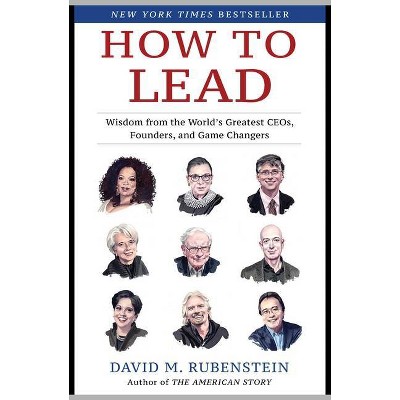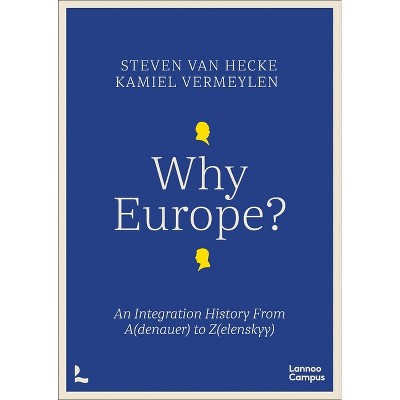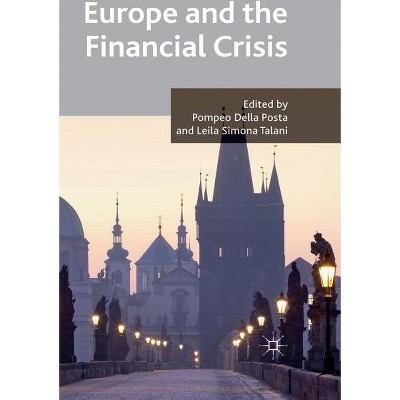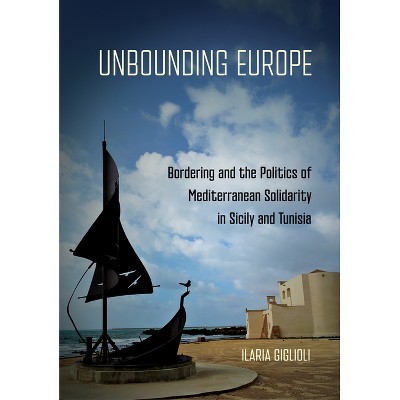Sponsored

Declaring War in Early Modern Europe - by F Baumgartner (Hardcover)
In Stock
Sponsored
About this item
Highlights
- A noteworthy development in recent history has been the disappearance of formal declarations of war.
- About the Author: FREDERIC J. BAUMGARTNER Professor of History at Virginia Tech, USA and the author of the Palgrave titles Behind Locked Doors: A History of the Papal Elections (2003), Longing for the End: A History of Millennialism in Western Civilization (1999), and France in the Sixteenth Century (1995).
- 206 Pages
- History, Europe
Description
About the Book
"A noteworthy development is recent history has been the disappearance of formal declarations of war. Many Americans argue that the result of this development has been to abrogate the US Constitution, which delegates the authority to declare war to the Congress. The goal of this book is to examine the history of declaring war in the early modern era up to the time when the Constitution was written in order to understand what the framers of the Constitution had in mind when gave the power to declare war to Congress. In the late middle ages, formal declarations of war were highly ritualistic acts, but by the early seventeenth century, they had changed into a practice whereby an ambassador presented a printed declaration to an enemy king. Key issues include determining how and when the medieval practices of declaring war gave way to the more modern ones, and the extent to which American framers accepted or rejected the practice of their era. While the debate over recent congressional resolutions authorizing use of the armed forces overseas has generated many publications, the wider history of declaring war has been far less a topic of study, and the early modern era has been all but ignored. This book's primary sources include ambassadorial reports, especially those from Venetian ambassadors, declarations of war, published works by noted contemporary thinkers, and several early modern literary works that depict the high drama of declaring war"--Book Synopsis
A noteworthy development in recent history has been the disappearance of formal declarations of war. Using primary sources, this book examines the history of declaring war in the early modern era up to the writing of the US Constitution to identify the influence of early modern history on the framing of the Constitution.Review Quotes
'A valuable addition to collections on international law and diplomatic practice. Recommended.' CHOICE
"A wide-ranging study that focuses on the early-modern period but in fact tackles the entire historical background to the question of whether a declaration of war is necessary. An excellent example of how a major historian can make his knowledge relevant to contemporary discussions." - Jeremy Black, Professor of History, University of Exeter
"This study explores the legalistic and religious traditions that undergirded the declaration of war from the ancient world through the eighteenth century. In particular, it focuses on the transformative developments in the sixteenth century. Readers will welcome Baumgartner's ability to intertwine theory and practice and to illustrate the disjunction between law and its realization, what the Germans called Rechtsverwirklichung. It illumines larger questions such as the development of the international state system and of international law and the evolution of the theory of just war, especially in the early modern period when war or the threat of war was so pervasive. This book adds to Baumgartner's impressive corpus of work on the early modern era." - Linda Frey, Professor of European History, the University of Montana and Marsha Frey, Professor of History, University of Kansas
"The early modern period around which most of the book centers is indeed a formative one for the development of ideas and practices concerning the declaration of war. Baumgartner has done a good job in assessing the secondary literature and situating his topic in its historiographical context. More importantly, he has assembled an impressive body of primary source material, particularly deriving from thinkers on war. Overall, this is a perceptive, thorough, and useful study of a neglected topic." - Frank Tallett, Head of School of Humanities, University of Reading, UK
About the Author
FREDERIC J. BAUMGARTNER Professor of History at Virginia Tech, USA and the author of the Palgrave titles Behind Locked Doors: A History of the Papal Elections (2003), Longing for the End: A History of Millennialism in Western Civilization (1999), and France in the Sixteenth Century (1995).Shipping details
Return details
Frequently bought together



Trending Non-Fiction














